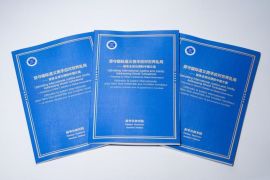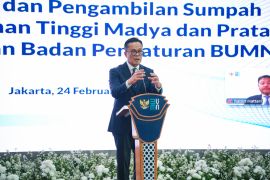We can guide them after they take a cue from other public service mallsJakarta (ANTARA) - Bureaucratic reform in Indonesia is ongoing across governmental institutions to improve the quality of service offered to people.
In accordance with the instruction of President Joko Widodo (Jokowi) and Vice President Maruf Amin, bureaucratic reform is inevitable to address the main problems, including the lengthy duration and complicated process.
The government is working on improving the quality of bureaucracy through simplifying and digitizing the bureaucratic process.
State Apparatus and Bureaucratic Reform Minister, Tjahjo Kumolo, stated on July 6, 2021, that the key to developing a more adaptive and faster bureaucracy was by simplifying the bureaucratic process.
The agile and adaptive institution will support bureaucratic reforms that would address the main issues.
To provide convenient services, the government has bolstered efforts by establishing public service malls (MPPs).
Streamlining public services is conducted through an integrated and digital system in the MPP.
Related news: All state agencies obliged to speed up public services: Minister
MPP is one of the expedited forms of service with various conveniences and functions on offer for people looking to complete administrative processes in the social and business sectors.
As of June 2021, some 43 MPPs have been operational in some regions in Indonesia. Some 10 of them began operations in the first semester of 2021.
The malls are located in the district or city areas including in Palembang City, Jakarta City, South Tangerang City, the city and district of Bekasi, Bogor City, Bandung City, Cimahi City, Sumedang District, Yogyakarta City, Kulon Progo District, Bantul District, Padang City, Pariaman City, Payakumbuh District, Pekanbaru City, Aceh City, and Aceh Besar District.
The public service building at each location is designed with an ethnic theme inspired from the local culture.
In 2021, the government targets to inaugurate 23 MPPs by the end of the year.
Related news: Reforming bureaucratic structure for effective governance
Serving the people
The government's seriousness in improving services for the public through MPPs is stipulated in Indonesia's Presidential Regulation Number 89 of 2021 on the implementation of MPPs.
The government has taken into account the integrated management required among local governments, ministries, institutions, state-owned enterprises, regional-owned enterprises, as well as the private sector in one place.
Thus, MPPs present a one-stop solution for people seeking fast and convenient public services.
According to the regulation, set on September 15, 2021, the mall aims to integrate services to achieve a fast, convenient, and secure process, as well as provide ease of doing business.
The district or city government will be the organizer of the MPP.
President Joko Widodo, during an internal meeting on July 8, 2021, remarked that the regional heads can emulate other regions that already have in place good public service centers.
“We can guide them after they take a cue from other public service malls,” Jokowi added.
Related news: President Jokowi highlights continued economic reform, transformation
The MPP is also established after taking into account the conditions of the region, such as activities of the community and businesses that require licensing services.
Moreover, the readiness of district and city governments in providing infrastructure and service support also becomes a criteria for establishing the MPP.
Improving the service index
The MPP will serve people through direct and mobile services as well as by utilizing the digital system.
Jokowi emphasized that good public services, as a result of bureaucratic reform, must be improved continuously.
MPPs are being operated to meet the increasing needs of the people. Thus, they will avail the service in a simple, quick, and more professional manner, the president noted.
Related news: Jokowi issues Presidential Regulation on Ministry of PANRB
The operation of MPPs is an improvement of the bureaucratic process, so the public can feel the positive effects.
According to the Administrative and Bureaucratic Reform Ministry, Indonesia's public service index (IPP) score has increased significantly in recent years.
The ministry noted that the IPP had reached 3.28 in 2017, while in 2018, the index had risen to 3.38.
A year later, the IPP score was recorded at 3.63, while in 2020, during the COVID-19 pandemic, the national IPP was recorded at 3.84.
Several aspects of IPP assessments comprise service policy, professionalism, facilities and infrastructure, information system, consultation, complaint handling, and service innovation.
Quality assessment of the IPP is conducted to obtain an overview of the public service performance, improvement of services, and rank the units.
"Several achievements need to be accelerated by the government jointly, so that we can develop bureaucracy that is agile and quick in accordance with the vision of the president and vice president," according to Minister Tjahjo.
The additional MPPs in other regions are expected to provide easier and faster bureaucratic services that can boost the Indonesian economy and welfare.
Related news: Indonesians prepare to learn to live with COVID-19
Related news: BNPB hands out five thousand masks before Papua PON opening
Editor: Fardah Assegaf
Copyright © ANTARA 2021












